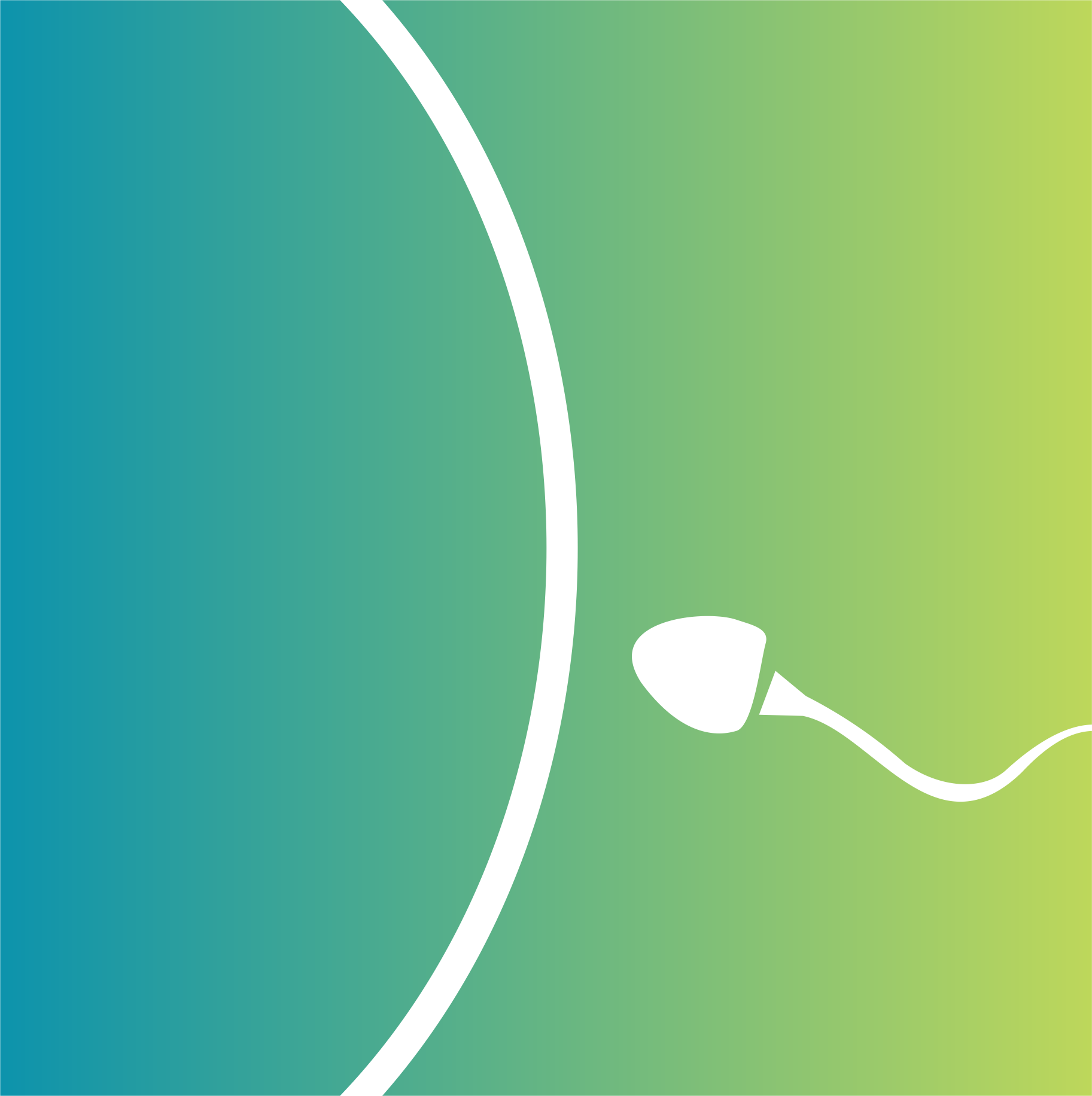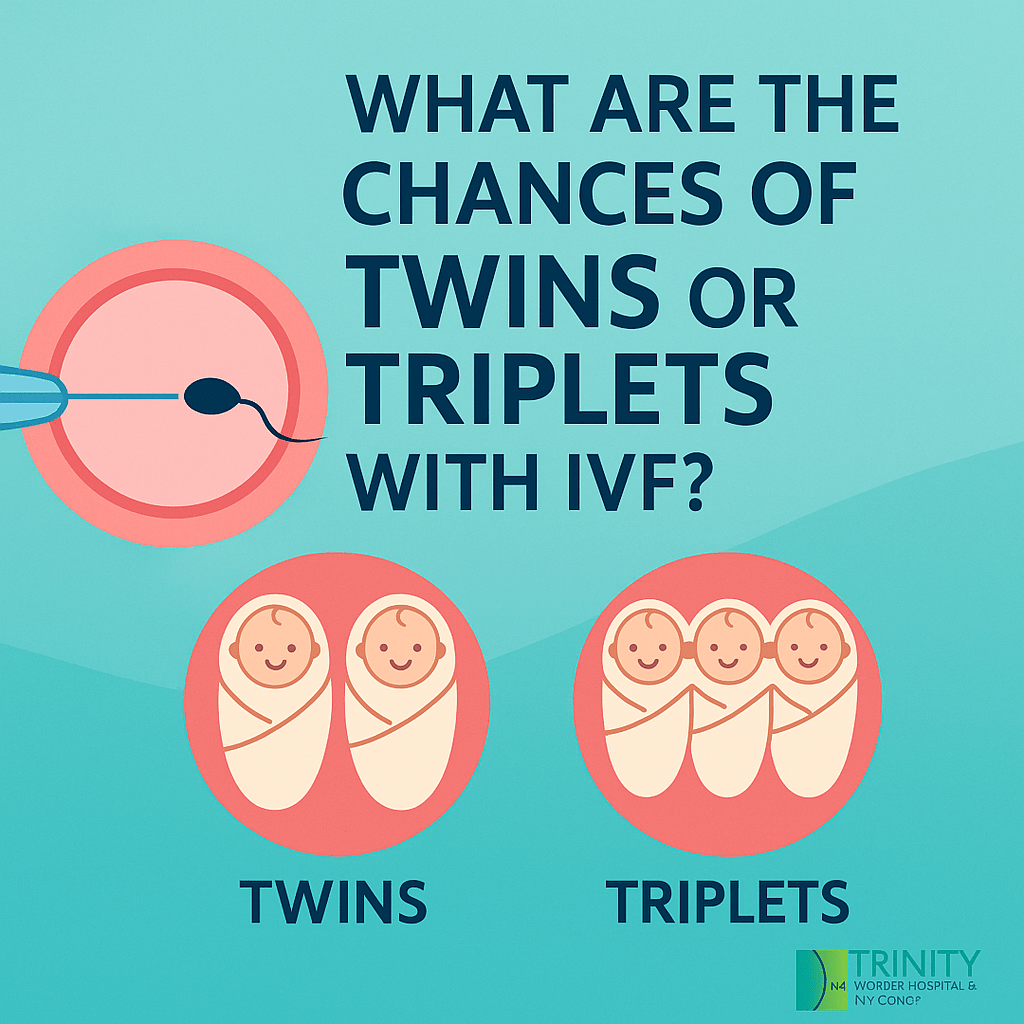IVF, or In Vitro Fertilization, has made millions of people across the globe dream come true to become parents. But with the hope that it also brings, one such common question lingers: what is the possibility of having twins or triplets with IVF?
Multiple pregnancies tend to go hand in hand with IVF, and although they can feel like a double (or triple) blessing, they also present some risks and considerations. In this blog post, we’ll be looking at why multiple pregnancies happen with IVF, how frequent they are, and what to expect if you’re carrying more than one baby.

Why Does IVF Increase the Chances of Twins or Triplets?
Embryo Transfer Practices
One of the primary reasons IVF may result in a multiple pregnancy is that more than one embryo is transferred during a treatment cycle. Early in the history of IVF, transferring several embryos was routine to increase the chances of success. Although this did enhance pregnancy rates, it also greatly raised the risk of twins and triplets.
Fertility Medications
IVF usually entails ovarian stimulation, in which medications are administered to stimulate the ovaries to release more eggs. With some instances, if IVF is combined with IUI (Intrauterine Insemination), this can also result in multiple eggs being fertilized, giving birth to twins or triplets.
What Are the Real Odds of Twins or Triplets with IVF?
IVF and Twin Pregnancy Statistics
Worldwide, IVF has a greater chance of giving birth to twins than natural conception.
- Natural twin rate: ~1 in 80 pregnancies (1.25%)
- IVF twin rate (with two embryos transferred): Up to 25–30%
- Triplets or more: Less than 1–2% in controlled IVF practices
The likelihood of a multiple pregnancy is based on a number of factors:
- Number of embryos replaced
- Woman’s age and her fertility history
- Embryo quality
- Use of donor eggs or embryos
At Trinity IVF Ahmedabad, we adhere to evidence-based recommendations in order to have safe and individualized embryo transfer protocols, which minimize the risk of high-order multiples.
Types of Multiple Pregnancies using IVF
It should be noted that not all multiple pregnancies are identical. With IVF, multiples can be:
1. Dizygotic (Fraternal Twins)
- Arise from two independent eggs that are fertilized by two independent sperm
- Arise when more than one embryo is replaced and both implant
- Most frequent type in IVF pregnancies
2. Monozygotic (Identical Twins)
- Form when a single embryo divides into two
- Less consistent and may occur even with single embryo transfer (SET)
- Estimated to occur in roughly 1–2% of IVF procedures
3. Triplets or Higher-Order Multiples
- Mostly a result of the transfer of three or more embryos
- Uncommon in contemporary IVF due to enhanced practices and legislation
- May be high-risk for mother and babies
Factors That Affect Multiple Pregnancy Risk in IVF
1. Number of Embryos Transferred
- Higher embryos provide greater risks of multiples. TIPS nowadays advocate Single Embryo Transfer (SET) for all but decrease chances.
2. Woman’s Age
- Young women below the age of 35 have better success rates in terms of implantation and tend to be more at risk from multiples if two embryos are implanted.
- Older females can be provided with multiples so that the odds of getting pregnant are high, but there is an increase in risks too.
3. Embryo Quality
- Healthy embryos implant more readily. Placing two high-quality embryos doubles your chance of twins.
4. Previous IVF History
- If women have a history of prior successful IVFs, they could be told that they should use fewer embryos at later attempts for reduced risk.
Risks and Issues Related to Twin or Triplet Pregnancy
Though thinking of twins or triplets will sound exciting to most, consider having knowledge regarding any possible problems.
Risks to Mother:
- Gestational diabetes
- High blood pressure or preeclampsia
- Increased demand for cesarean section
- Anemia and postpartum hemorrhage
Fetal and Neonatal Risks:
- Preterm delivery (more than 50% of twin gestations deliver preterm before 37 weeks)
- Low birth weight
- NICU admission
- Developmental delay
At Trinity IVF Ahmedabad, patient safety is our utmost concern, and we assist pregnant women in managing complicated pregnancies with regular monitoring and quality care.
Single Embryo Transfer (SET): Minimizing the Risk of Multiples
Due to IVF advances, Single Embryo Transfer (SET) has emerged as a favored method in most fertility clinics. Here’s why:
Advantages of SET:
- Reduces risk of twins or higher-order multiples
- Encourages healthier pregnancy outcomes
- Best suited for younger women with high-quality embryos
- Aided by contemporary embryo freezing technology
Who Should Have SET?
- Women aged less than 35 with good prognosis
- First-time IVF patients
- Those with available high-quality blastocysts
Even with SET, the risk of identical twins is minimal due to embryo splitting, though the risk of triplets is very low.
Embryo Freezing: A Safer Route to Parenthood
Thanks to better embryo freezing (cryopreservation), patients can choose one embryo per cycle, with others saved for later use. This alleviates the pressure of transferring more than one embryo at a time.
Advantages are:
- Safer pregnancies
- Family planning on flexible terms
- Lower treatment costs in subsequent cycles
Managing a Twin or Triplet Pregnancy After IVF
If your IVF cycle results in a multiple pregnancy, here are some steps to ensure a healthy journey:
Prenatal Care Tips:
- Regular ultrasounds and check-ups
- Specialized high-risk pregnancy monitoring
- Balanced nutrition and supplements
- Rest and activity modification as advised
- Emotional and mental health support
Certain couples are offered the possibility of selective reduction in high-order multiples, and this is a very personal and medical choice to have with experts.
Final Thoughts: Embrace the Journey, Stay Informed
The risk of twins or triplets with IVF is much greater than with natural conception, especially when more than one embryo is implanted. But with current IVF protocols, single embryo transfer, and individualized care, the risk can be safely controlled.
Knowing the factors that affect multiple pregnancy and having a trusted fertility team can assist you in making informed, confident choices.
Ready to Start Your IVF Journey?
If you are considering IVF and wish to gain a clearer insight into the risks and benefits of multiple pregnancy, our specialists at Trinity IVF Ahmedabad are here to assist.
Get in touch with us today for a comprehensive consultation and begin your journey to parenthood with confidence and care.

